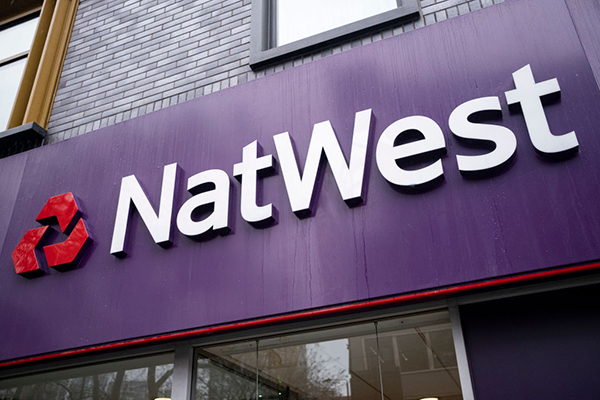Market snapshot: more tariff uncertainty and big news from NatWest
There seems no end to the tariff story as President Trump ramps up levies on foreign goods again. ii's head of markets has the latest from the States plus a symbolic event at one of the UK's biggest banks.
2nd June 2025 08:21
by Richard Hunter from interactive investor

US markets ended May on a flat note, although for the month as a whole each of the main indices rose strongly following hopes of tariff reconciliations.
Such optimism will face an immediate challenge as June begins, with comments over the weekend keeping the aggressive rhetoric in place. The latest broadsides from the White House were primarily directed at China and the EU, with both threatening a response in kind to any further tariff hikes.
- Invest with ii: SIPP Account | Stocks & Shares ISA | See all Investment Accounts
Back on the ground, there were some promising economic signs with the Federal Reserve’s preferred measure of inflation, the Personal Consumption Expenditures index coming in lower than expected and with a consumer sentiment index showing higher than had been feared.
However, such respite could prove short-lived as the latter was largely predicated on an apparent softening of hostilities between the US and China in the latter part of the month, which has since evaporated. There will be a further signal on the state of the economy at the end of the week, with non-farm payrolls expected to show that 130,000 jobs will have been added in May compared to 177,000 the previous month and that the 4.2% unemployment rate will remain unchanged.
In the meantime, US markets have repaired much of the damage wrought over the last few months although sentiment remains fragile. The Dow Jones and Nasdaq are down by 0.6% and 1% respectively in the year to date, while the 0.5% gain for the benchmark S&P500 has in part been driven by a resurgence of the mega cap technology trade.
- Insider: boss buys shares so cheap it’s a joke
- Stockwatch: has market mood really shifted for these two shares?
- The Week Ahead: BAT, Paragon Banking, Dr Martens
In addition to contending with the weekend comments, Asian markets fell foul of geopolitical uncertainty following the latest Russia/Ukraine developments, with the Hang Seng under pressure based on the renewed likely tariff hikes on aluminium and steel. Mainland China was closed for a public holiday, which could leave some losses being stored up ahead of its reopening, likely exacerbated by a report which showed a further contraction in factory activity over the last month.
The fractious backdrop spilled over to a lacklustre open in the UK, where some measured strength in defence shares given the weekend’s developments was offset by more broadly-based weakness. Even so, the main indices continue to be a beacon of light compared to many of the beleaguered global indices, with rises in the year to date of 7.5% and 2% for the FTSE100 and FTSE250 respectively.
NatWest
The removal of the last vestiges of the government stake in NatWest Group (LSE:NWG), announced at 6pm on Friday, is in reality little more than a symbolic move than a turning point. Nonetheless the technical overhang of the stake had been a heavy weight on the share price and the group can at last move on.
While the shares will likely never recover to the heady levels of almost £64 per share in 2007 – NatWest is, after all, an entirely different and slimmer beast from the bloated and overstretched Royal Bank of Scotland which very nearly met its end - the group now has definite prospects and has seen the benefit of a rerating of the sector.
The reported £10 billion loss for the government is something of a red herring, given that its action at the time was a pure and simple bailout as opposed to an investment. Meanwhile, the shares have risen by 66% over the 12 months and by 30% this year alone, with the first-quarter figures in May underlining that the stars are aligning for NatWest.
- ii view: high-flying NatWest is revitalised
- How are retail investors investing their SIPPs?
- Sign up to our free newsletter for investment ideas, latest news and award-winning analysis
Indeed, it remains to be seen whether this new-found freedom will enable a more aggressive acquisition policy, with NatWest already having made what it described as two significant purchases in the form of Metro Bank’s mortgage book and Sainsbury’s Bank and reportedly having been rebuffed in an approach for Santander’s UK operation.
Its significant cash generation will provide an interesting dilemma on whether to continue to bolster shareholder returns, make further acquisitions, invest heavily in the business particularly in regard to growing digitalisation, or perhaps a combination of all of these options.
These articles are provided for information purposes only. Occasionally, an opinion about whether to buy or sell a specific investment may be provided by third parties. The content is not intended to be a personal recommendation to buy or sell any financial instrument or product, or to adopt any investment strategy as it is not provided based on an assessment of your investing knowledge and experience, your financial situation or your investment objectives. The value of your investments, and the income derived from them, may go down as well as up. You may not get back all the money that you invest. The investments referred to in this article may not be suitable for all investors, and if in doubt, an investor should seek advice from a qualified investment adviser.
Full performance can be found on the company or index summary page on the interactive investor website. Simply click on the company's or index name highlighted in the article.